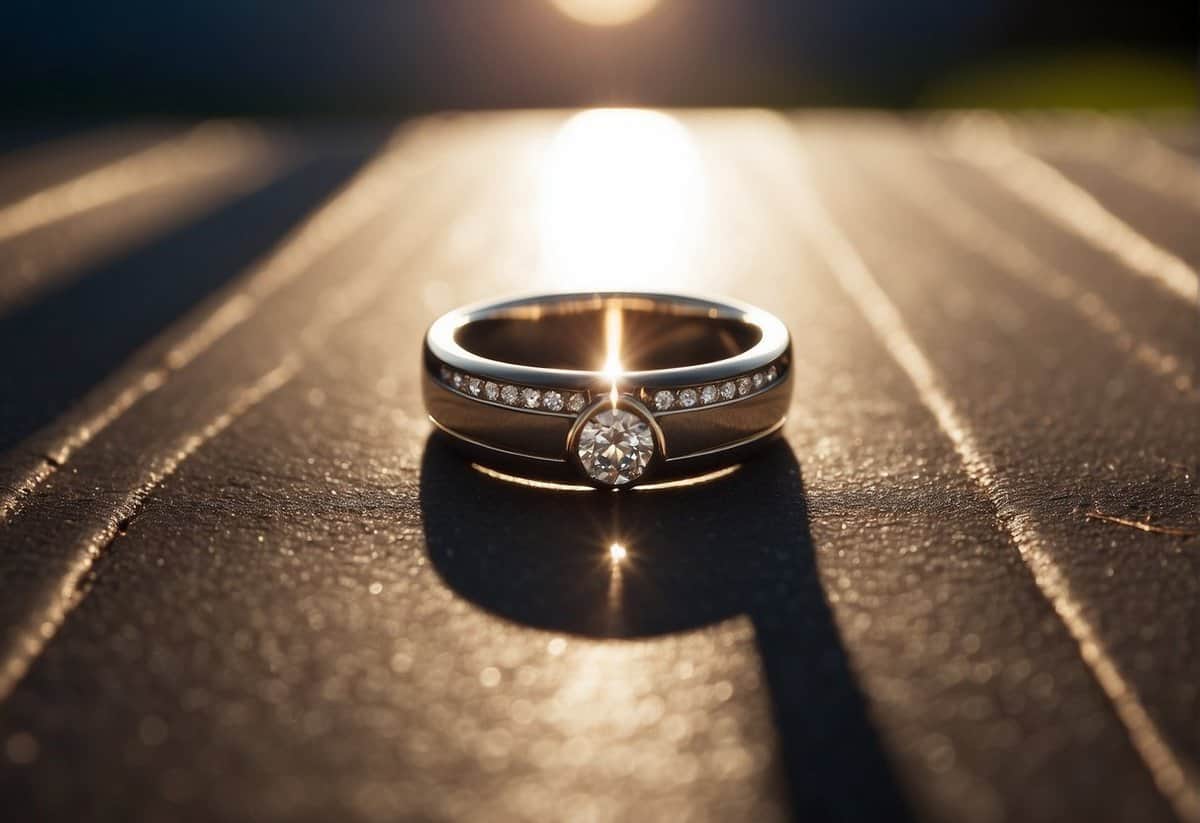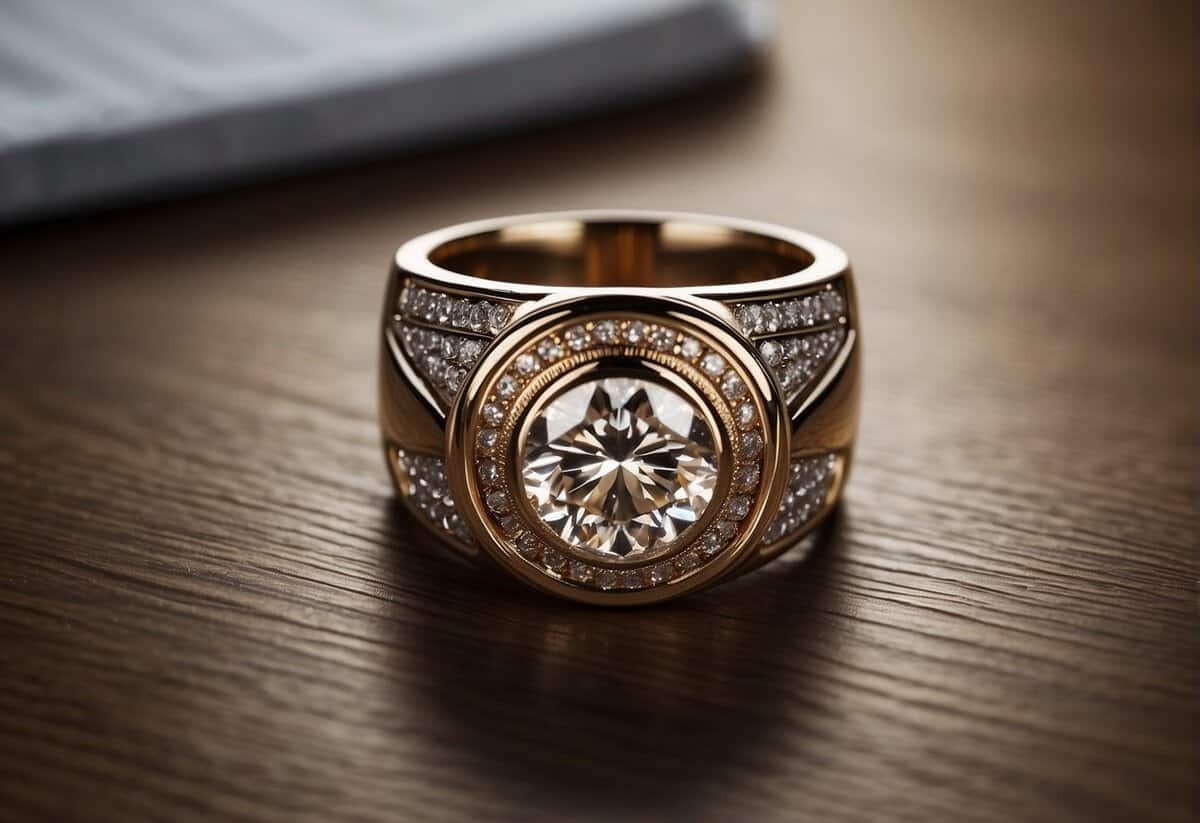Who Owns the Ring After a Divorce? Deciphering Asset Division
When the union of marriage ends, questions about the division of assets often arise, and the fate of symbolic and valuable items such as wedding and engagement rings can become a contentious issue. Generally, these rings are seen as more than mere jewelry; they represent promises and memories which can make determining ownership after a divorce complex.

The law treats wedding rings and engagement rings differently, with engagement rings often viewed as a conditional gift given in anticipation of marriage. If a marriage does not take place, laws in most states require the engagement ring to be returned to the giver. However, once the condition of marriage is met, the engagement ring typically becomes the personal property of the recipient. The wedding ring, exchanged during the ceremony, is often considered marital property, but who gets to keep it after divorce can vary based on state laws and the circumstances of the marriage dissolution.
Key Takeaways
- Engagement rings are often conditional gifts, whereas wedding rings may be deemed marital property.
- Laws vary by state, but typically the engagement ring becomes the recipient’s personal property after marriage.
- Post-divorce options for rings can involve keeping, returning, or repurposing them.
Legal Aspects of Ownership

In a divorce, determining the ownership of an engagement and wedding rings hinges on distinguishing between different types of property and gifts. Understanding these concepts is crucial when navigating the legal landscape.
Marital vs. Separate Property
Marital property, which is also known as community property in some states, refers to assets that you and your spouse acquire during your marriage. Conversely, separate property is anything you owned prior to the marriage or received individually as a gift or inheritance. Generally, wedding rings are considered separate property because they are gifts given to you before the marriage or purchased with separate assets.
Conditional vs. Absolute Gifts
A conditional gift is one that comes with strings attached, meaning certain conditions must be met. When an engagement ring is given, it is often deemed a conditional gift, implying the condition is the future marriage. If the marriage takes place, it typically becomes an unconditional gift, which is a gift given without expectations of return or performance, and it’s yours to keep post-divorce.
State Laws and Precedents
The laws can vary quite a bit from state to state. Some states use the concept of community property to determine who gets what in divorce, while others follow “equitable distribution,” which can be more complex. For specific details, you should seek legal advice from a divorce attorney in your state who understands the division of assets and property. They can guide you through state laws and precedents that might influence whether you can retain your rings after divorce.
Remember, while this section provides a snapshot of the legalities of ring ownership after divorce, it’s not a substitute for personalized legal advice from a qualified lawyer.
Assessing the Ring’s Value and Significance

When going through a divorce, understanding the ring’s monetary worth and its emotional significance can be quite important. The value you and your ex-partner place on the ring may differ greatly, affecting decisions about its division.
Appraisal and Valuation of Rings
Your wedding and engagement rings can have substantial monetary value, often determined by factors like the presence of diamonds and the quality of gold. To find out exactly what your ring is worth, you’ll want to seek a professional appraisal. This will not only give you an exact dollar figure but can also provide a detailed description of your ring’s characteristics, such as carat weight, cut, clarity, and the metal’s quality.
Sentimental Value and Symbolism
When it comes to sentimental value, it’s a personal experience. Your wedding ring isn’t just a piece of jewelry; it symbolizes your marriage, commitment, and the memories you’ve shared. You might find the ring’s symbolic value eclipses its financial worth, making the decision of what to do with it after a divorce more complex.
Heirlooms and Family Rings
If your ring is an heirloom or a family heirloom, the situation gets a bit more nuanced. These rings carry generations of history and are treasured as a familial bond—a legacy passed down. Determining the future of family rings after a divorce can require a delicate balance of respect for family traditions and legal considerations.
Post-Divorce Options for the Ring

Deciding what to do with a wedding ring after divorce can be a deeply personal choice. You have options like keeping it as a keepsake, selling it for cash, or turning it into a new piece of jewelry.
Keeping, Selling or Repurposing
Keeping the ring might be an option if it holds sentimental value for you. You could choose to simply store it away or even wear it on a different finger as a symbol of self-love or independence.
If keeping it doesn’t appeal to you, selling the ring is often a practical choice. You can sell your ring at a jewelry store, to a pawn shop, or through an online marketplace. Selling provides a clear financial benefit, offering you a sum of cash that might be put toward your future needs or goals.
Alternatively, you may opt to repurpose the ring into a new item of jewelry, thus transforming its meaning. A jeweler can assist you by redesigning your ring into a new piece that suits your current taste and lifestyle.
Donating or Passing Down to Children
Donating your ring to a charity can be a cathartic experience, allowing you to turn a memory into an act of generosity. It’s a way to give back to the community and potentially help those in need.
If you choose not to sell or donate, you might consider passing the ring down to your children. It can become a cherished family heirloom, rich with history and personal value, which might be appreciated by future generations.
Frequently Asked Questions

When facing a divorce, questions about the fate of wedding and engagement rings can add an emotional layer to an already complex process. Here, we’ve tackled some of the most commonly asked questions to provide you with clarity on this topic.
Are wedding ring ownership laws different in each state after a divorce?
Yes, the laws regarding wedding ring ownership after a divorce vary from state to state. In some cases, the ring is considered separate property and in others, it may be seen as marital property to be divided.
Is there a customary rule for who gets to keep the wedding ring after a divorce?
While there isn’t a universal rule, typically, a wedding ring is considered the property of the person it was given to. Some traditions or agreements may influence the decision, but legally, it’s often seen as the recipient’s property.
Does it matter who bought the wedding ring when deciding who keeps it after a separation?
Generally, it doesn’t matter who purchased the ring. Once given, the ring is seen as a gift to the recipient, and following the marriage, it’s considered ‘earned’ and typically remains with the person to whom it was given, regardless of who bought it.
Can one sell their wedding ring following the dissolution of the marriage?
Yes, the individual who legally owns the wedding ring has the right to sell the wedding ring after the divorce. They can use the proceeds in any manner they see fit, such as paying off joint debts or investing in new beginnings.
What happens to the engagement ring specifically after the divorce is finalized?
The engagement ring is often treated similarly to the wedding ring. In most instances, the engagement ring remains the property of the recipient once the marriage has taken place.
Are there any sentimental or cultural considerations affecting who keeps the wedding ring post-divorce?
Sentimental and cultural considerations can play a role in deciding who keeps the wedding ring. These are personal choices and can include options like passing the ring on to children or repurposing the ring’s materials, but these factors don’t typically affect the legal ownership.
